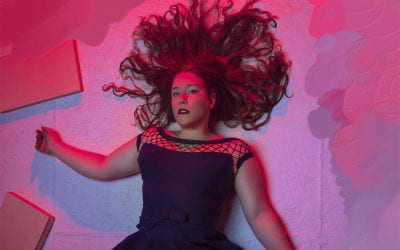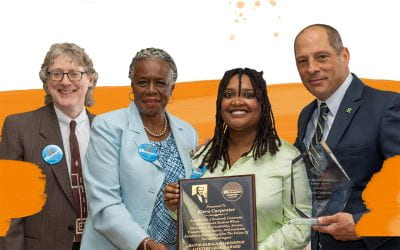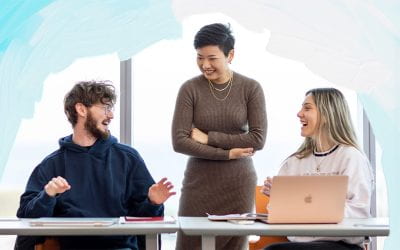Under the Capitol Dome
State Rep Teaches Political Science Course at Rooseveltby Katy Cesarotti
State Representative Will Guzzardi is a vocal proponent of affordable health care. He chairs the House Prescription Drug Affordability committee. In August, he helped create a program to donate safe, unopened prescription drugs to low-income patients.
So when a pharma lobbyist made an unsolicited donation to his campaign, he was understandably a little confused. On one unseasonably warm day at Roosevelt University, Guzzardi asked his students: What should I have done with the check?
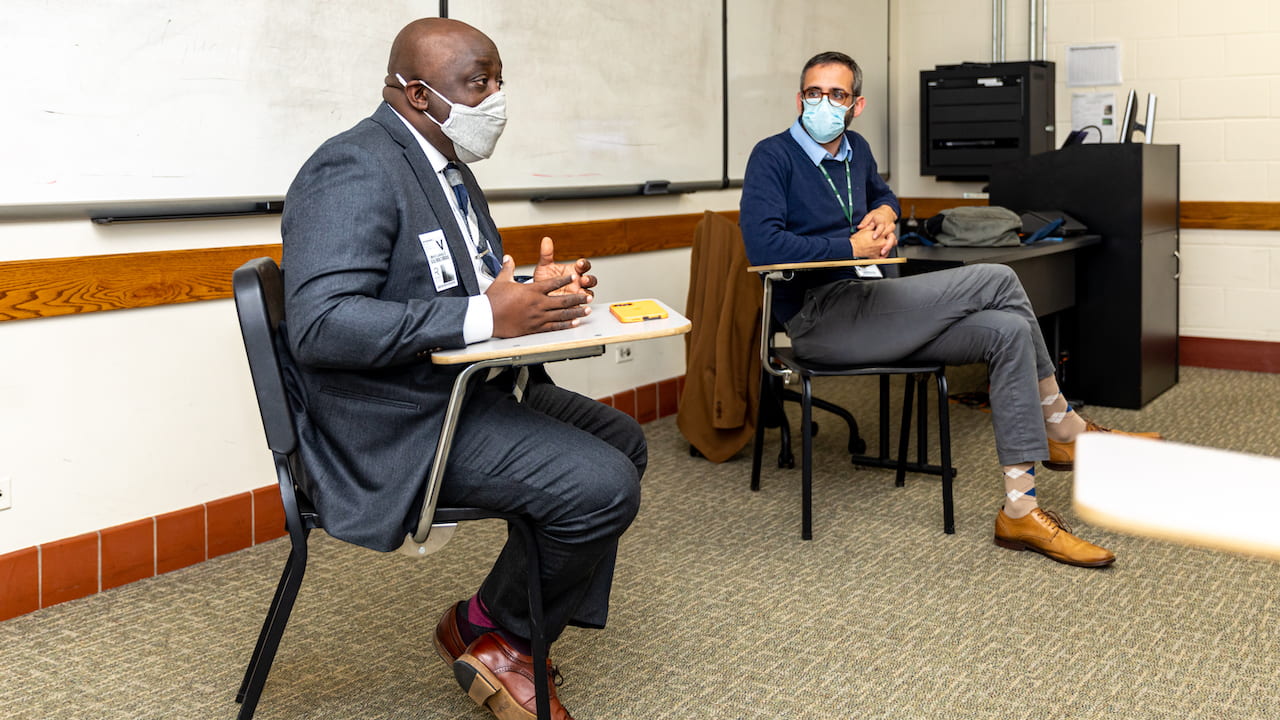
Guest speaker Sharone Mitchell, Cook County public defender, and Rep. Will Guzzardi.
This fall, Rep. Guzzardi taught a political science class that gave Roosevelt students a look behind the curtain of the Illinois state government. The course dissected the recent legislative session, the state budget and major policy changes from an up-close and personal point of view.
Guzzardi’s students had some creative answers to his question. Return the check, one suggested. Another argued he should cash the check and take out Facebook ads against Big Pharma. But, another student pointed out, constituents might see his donation records and lose trust in him.
For Guzzardi and his students, the issue wasn’t just a thought exercise but an entrée into complex political questions.
How do you represent the best interests of your constituents? What do you do when there’s friction between your values and a piece of legislation? How much should you compromise to accomplish your political goals?
I was amazed to learn about Roosevelt’s focus on social justice and civic engagement for students. It seemed like an ideal place to share my experiences.
— Rep. Will Guzzardi
Teaching the next generation of leaders
Will Guzzardi represents the 39th District in the Illinois House, covering Logan Square, Portage Park, Belmont Cragin, Hermosa and Avondale in Chicago. In 2014, he won a high-stakes primary campaign against one of the city’s established political dynasties. Now in his fourth term, Guzzardi chairs the Housing committee and co-chairs the Illinois House Progressive Caucus.
“I was amazed to learn about Roosevelt’s focus on social justice and civic engagement for students,” Guzzardi said. “It seemed like an ideal place to share my experiences with the next generation of leaders.”
In the state rep’s class, Roosevelt students weren’t confined to a textbook. The undergraduates read the same primary sources that Guzzardi and his colleagues use as resources. Each week, the students talked about the documents as a group, bringing in their own perspectives and experiences.
The class also welcomed guest speakers as a window into other political arenas. One of Guzzardi’s colleagues spoke to the class about cannabis legislation. Khadine Bennett, director of intergovernmental affairs at the ACLU of Illinois, visited the class in the Auditorium Building.
During the fall legislative session, Guzzardi invited his students to tune in and watch the proceedings live.
“I hope that spending some time with flesh-and-blood elected officials reminds them that we’re just people,” Guzzardi said. “Students should feel invited and encouraged to have real conversations with their representatives.”
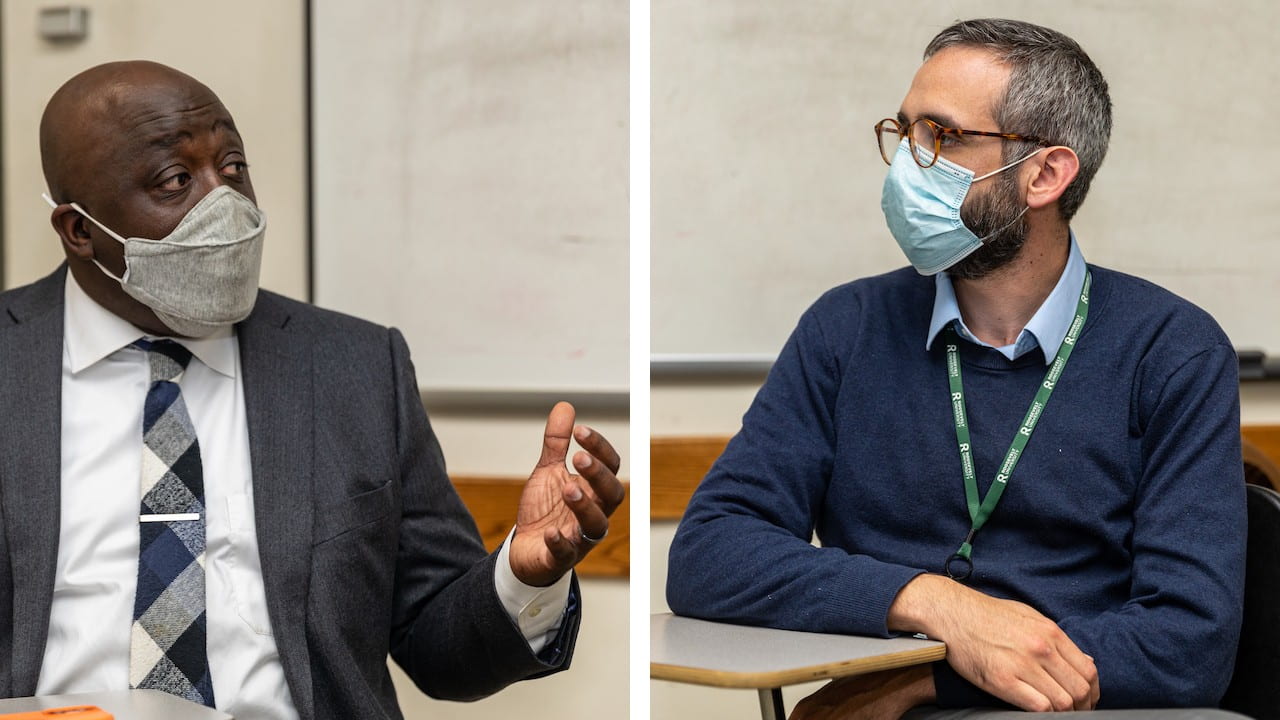
Hopefully, they learn about Illinois and government and also learn more about the broader political and governmental world.
— Rep. Will Guzzardi
Laboratories of political change
With the federal government mired in gridlock and municipalities constrained by budgetary woes, state legislatures have become laboratories of political change. Texas lawmakers have wielded their power to pass anti-abortion laws. In Illinois, the legislature recently passed a sweeping climate law.
Illinois now has supermajorities of Democrats in both legislative chambers and a Democratic governor. In Guzzardi’s course, students reflected on what the state has managed to accomplish and what happens when party members disagree. Why doesn’t the General Assembly just pass every bill? What factions and forces pull against party cohesion?
“The course helps students think more broadly about how social change happens, how governments respond to their constituents, and how elected officials are influenced by all the factors involved in collective decision-making,” said Guzzardi.
He added, “Hopefully, they learn about Illinois and government and also learn more about the broader political and governmental world.”
More in this section
Opera’s leading role in transforming gender identity in the arts
Lucia Lucas is a force—both on stage and off. In April, Lucia made history during her debut at the Lyric Opera of Chicago as the first openly transgender person to perform there in a leading role.
Deserving of a truly special honor
Friends of Roosevelt recently gathered to recognize Kiera Carpenter, an aspiring environmental professional, as the inaugural recipient of the Mayor Harold Washington Legacy Scholarship.
In and beyond the multicultural classroom
Professor Yue Li helps students to not only recognize and embrace culture differences, but to see social hierarchies that create privilege and oppression.

